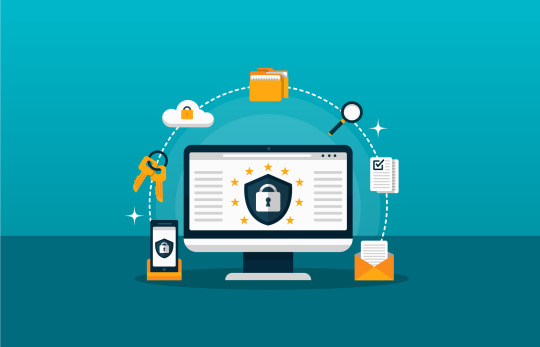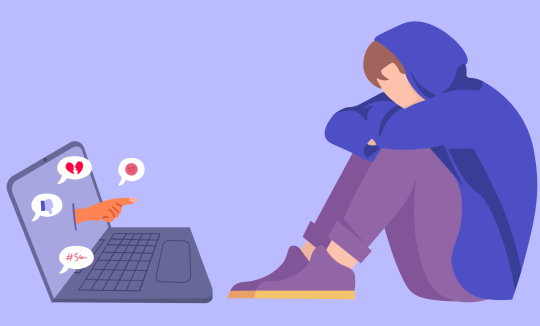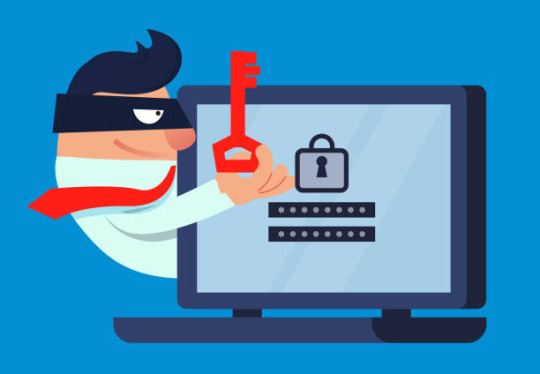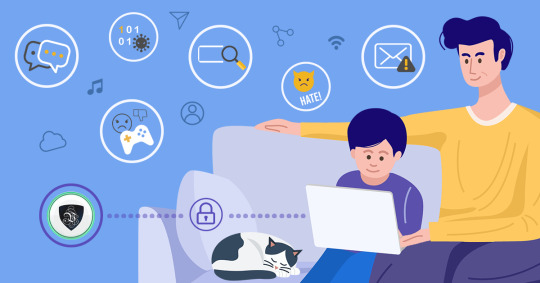#also for the video game stream I linked to violence warning and swearing
Text
Videos for Those Days™
If you are feeling some type of negative emotion (and have an Internet connection), I am sharing a list of videos I keep on standby for bad days!
If any of these links break, please let me know and I'll fix/delete them. I'll also update with new ones I find.
There was an attempt to childe --- a meme-filled video of a trio of siblings trying (and failing) to make a hype video for Childe from Genshin Impact. Knowledge of Genshin is not required.
Warnings: Mild swearing, cursed images
Big Bill Hell's Cars --- a parody car commercial.
Warnings: Intense swearing, suggestive content
Spiders On Drugs --- a parody nature documentary.
Warnings: Drugs, mild swearing
I forced my friends to dub anime voice clips --- a group of friends dub over anime clips in humorous ways. I just linked the first one in the series, but they're all pretty good.
Warnings (dependent per video but usually): Swearing, suggestive content, animated violence, blood, spoilers
Childhood Crushes --- a group of friends describe what childhood crushes they had (and ones they have now). There are illustrations accompanying the audio. Again, this is just the first one; there are 4 total.
Warnings (dependent per video but usually): Swearing (it is mostly beeped out), suggestive content
history of the entire world, i guess AND history of japan --- a humorous retelling of world history and Japanese history, respectively, filled with jingles, stick figures, and photoshop. Made by the same guy, which is why they're together.
Warnings: Swearing, one mention of suggestive content in "history of japan"
Twisted Wonderland as meme songs --- exactly what it says on the tin. Knowledge of Twisted Wonderland isn't required, but will enhance viewing.
Warnings: Flashing lights in Cater's part (0:10-0:16), one swear in Vil's part (1:25-1:30)
chuuya's gloves --- a channel. They have too many good videos; I can't pick just one. Their specialty is funny Bungou Stray Dogs compliations. Knowledge of Bungou Stray Dogs isn't required, but will enhance viewing.
Warnings (dependent per video but usually): Mild swearing, loud noises/ear rape, mild suggestive content, suicide jokes/mentions, animated violence, blood
RednasYo AND RednasYunk--- another channel. Again, he's got too many good ones. He plays almost exclusively Genshin Impact, but he also occasionally does a few other series, such as Minecraft, Valorant, Tower of Fantasy, Honkai Star Rail, League of Legends, Pokémon, Animal Crossing, and others, as well as some art videos. He's got a good variety of memes, playthroughs/Let's Play, and long videos for background play. His second channel mainly has stream highlights and long story quest videos.
Warnings (dependent per video but usually): Mild swearing (sometimes it's bleeped, sometimes it isn't), animated violence, spoilers
wacky woohoo pizza man adventures --- a meme-filled recap of Devil May Cry 5. Knowledge of Devil May Cry is not required (I know basically nothing about the series, and I still enjoyed it), but will enhance viewing.
Warnings: Swearing, spoilers, intense animated violence, blood, mild loud noises/ear rape
Max0r --- the third channel. He does very fast-paced, meme-filled "reviews" of video games.
Warnings (dependent per video but usually): Swearing, animated violence, flashing lights, offensive content (mostly against the English, Americans, capitalists/capitalism, and white women, although I would describe it as "shock humor" and it isn't meant to be taken seriously)
6 notes
·
View notes
Text
✨ Internet Safety ✨
For our generation today, the internet is probably the safest place to be in. People can be whoever they want, express whatever they want, and enjoy themselves however they want. I must admit, I would also say that I couldn’t live without the internet. Internet is just the solution to every problem, right? Now, we can even earn money in the comfort of our rooms with the help of the internet. Should we spend hours travelling just to buy stuff? Nah, we got the internet! With just several clicks we can already make an order and just wait on our couch to receive it. Oh no, COVID-19 ruled the world! No worries, we are backed up by the internet. Online classes, online transactions, online dating. You name it. The internet is there for us, or is it? Is it our safe haven?
We have put so much trust in the internet, but we didn’t know it can also be our biggest predator. Online transactions were fun until you got scammed and lost all your money. Online dating them feel loved until the person they were talking to is a catfish. Streaming online made him famous and rich, until his account got hacked. And there are still millions of stories out there that should awake us from believing that the internet is the safest thing in the world.

Below are some possible dangers you could encounter online.
1. Cyberbullying
I’m sure many of you have heard of this. But even though we are fully aware of it, it is still one of the major problems until now. As we casually scroll in our social media feeds, it is already normal for us to see people making fun of or “bashing” other people. It became so prevalent that we could call it a normal thing. According to UNICEF (2019), one in three young people has said that they have been a victim of cyberbullying and that it affected almost half of the Filipino children aged 13-17. We need to know that even a single word like “tanga” or “bobo” we see in our social media platforms and online gaming worlds could affect or traumatize us greatly.

2. Data Being Stolen
Some people nowadays are getting better at doing this. They can steal your money from your accounts, apply for a loan or credit card using your name, or sell your information to an online criminal as well. The hidden website is packed with criminals who purchase and sell stolen personal data. If your data is stolen, you can experience spam attacks. But most of these data thefts try to steal sensitive information, such as your credit card or personal information to commit identity theft.

3. Exposure to Inappropriate Material
Another risk especially for children and teenagers are exposure to inappropriate materials that are sexual, hateful, or violent. The chance and probability for children to look at anything inappropriate rely on how much they do online as they get more active online at a younger age. Whether it's a free-time graphic pop-up commercial, children's cartoon characters in adult circumstances or a self-harm forum, an innocent search might expose these children to contents that make them feel puzzled and angry. Some of the inappropriate content includes pornographic material, content containing swearing, sites that encourage racism, violence, terrorism, or even suicide, sexism sites, or gambling sites, and so on.

Based on my own experiences, here are some tips I would like to share to you to look after your privacy and secure your internet safety:
1. Keep your software up-to-date
Not only will you get a better program experience, but you will also be able to iron out your security issues. But the reason why you must keep it updated is that hackers are fast enough to become aware of certain software’s vulnerabilities, thus could harm your computer system and personal data. If you avoid doing these updates, you are bound to face persistent bugs, data loss, malware infection, and of course security issues.
2. Update your passwords
Why do we need to constantly change our passwords? So that we can reduce the risk of other people having access to our accounts, thus corrupt our personal data. Using strong passwords is necessary for us to prove our identity in our accounts, websites, or our computer itself (Wright, 2021). My tip in creating passwords is random characters with a symbol, number, and at least one capital letter. The reason for this is that using weak passwords, such as patterns of letters and numbers, or simply your name and some important date you know can cause hackers to guess and open your account, hence impersonate you to commit fraud and other crimes.
3. Use two-factor authorization
Familiar with this term? Yes, a two-factor authorization (2FA) is an extra step to keep your accounts more secure and avoid getting hacked by others. One of the most common 2FA methods is one-time codes sent through SMS or email, authenticator apps such as Google Authenticator, and security keys such as U2F tokens (Drozhzhin, 2018). This one for me is the best 2FA authorization because only your private key will confirm your login. If someone will try to log in to your account with the wrong security key, they will not be granted access to your account. So, there you go. A series of two-factor authorizations that will secure your accounts the best way possible. You’re welcome!
4. Be careful what you click on
Have you heard of phishers? They are attackers that send a fraudulent message designed to trick and victimize us into revealing sensitive information to them. As scary as it sounds, we need to be aware of what we click on to avoid experiencing this. Phishing is usually done in an email when they get your email address from somewhere. These phishers try to create a fake website to trick you into typing in your personal information. It’s much easier for them to hack our accounts this way. To avoid this, you can check the URL’s legitimacy by using the Google Transparency Report or simply avoid suspicious emails which require your personal information. Think before you click!
5. Back-up your data
Data back-up and recovery has many advantages. Some of these are protecting and saving your data, provides ease of management, ensures accurate information of your data, quick access to data, scalability, and such (Becker, 2021). There are many other ways to back up your data, but here’s a simple way to manually back up your data in your phone is to open your phone’s settings app, tap system and click backup or search backup in your settings app, then tap back-up now. It’s that simple.
6. Set up notifications for your most important bank accounts
As online bank account holders, it is our responsibility to making sure our accounts are protected. Online accounts are one of the easy targets of hackers to whisk away our money with just a couple of keystrokes. To safeguard our online banking, we may choose an industrial-standard security bank or credit union that utilizes text or e-mail warnings avoids the use of public Wi-Fi access and periodically changes your password.
7. Protect your personal information
This might be difficult for those who like to express themselves on social media, but we must protect our personal identity to avoid any sort of online threats. To protect our identity, we must limit the amount of personal information we share or provide. We shouldn't share or provide this information online: exact home address, your place and schedules of classes or work, birthday, cellphone number, and most importantly our passwords or account information. Another tip is to write down in a small notebook all your passwords and keep them safe in a secure place away from your computer.

8. Use parental controls and stay present
With the pandemic going on right now, parents should be extra careful of what their children see and hear about themselves and who they encounter on the internet. To protect your children from internet risks, talk to them frequently, utilize tools to safeguard them and watch out for their work. Monitor the time of your child, especially the younger ones, about when and how long they stay online. Keep your computer at a central location in your house, where it's easy to watch what your children do and look at online. You may configure them for mobile devices to forget Wi-Fi passcodes for your kids not to go online without knowledge. Review privacy and location settings, parental control and use secure browsers, apps, search engines and YouTube search settings. Lastly, limit camera and video to prevent your children from accidentally taking photos or videos of themselves or others.

The internet does not usually hurt us unless we react to suspect material and websites. The first reason you don't know what you're doing is because of internet damage. Secondly, you may react or click on links such as appealing advertisements, infected software and communications when you have other forces. To ensure internet safety, just remember those tips above and these three things: secure your network, be responsible, and make the internet child-safe.
References:
Becker, D. (2021). 6 Advantages of Data Backup and Recovery. IT Central Station. Retrieved from https://www.itcentralstation.com/articles/6-advantages-of-data-backup-and-recovery
Drozhzhin, A. (2018). SMS-based two-factor authentication is not safe — consider these alternative 2FA methods instead. Kaspersky Daily. Retrieved from https://www.kaspersky.com/blog/2fa-practical-guide/24219/
Wright, J. (2021). Why Is it Important to Change Your Password? Small Business Chron. Retrieved from https://smallbusiness.chron.com/
Online bullying remains prevalent in the Philippines, other countries (2019). Unicef Philippines. Retrieved from https://www.unicef.org/philippines/press-releases/online-bullying-remains-prevalent-philippines-other-countries
25 Best Internet Safety Tips for Every Situation (2021). The Neeva Team. Retrieved from https://neeva.com/learn/25-best-internet-safety-tips-for-every-situation
3 notes
·
View notes